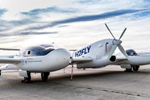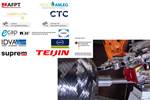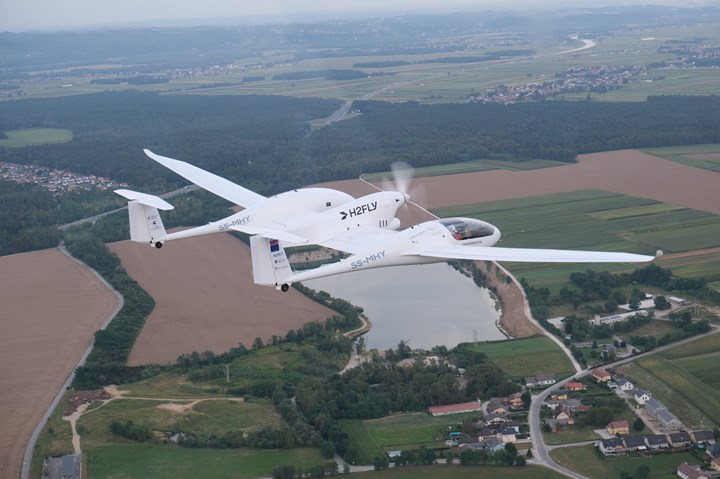H2Fly completes piloted flight of LH2-powered electric aircraft
Joby subsidiary’s composites-intensive HY4 demonstrator took off from Slovenia and saw safe and efficient operation throughout multiple flight tests.
H2Fly (Stuttgart, Germany), a wholly owned subsidiary of Joby Aviation (Santa Cruz, Calif., U.S.) and developer of hydrogen-electric powertrain systems for aircraft, has announced the successful completion of piloted flight of an electric aircraft powered by liquid hydrogen (LH2). CW was told that while the cryogenic hydrogen storage vessels are not composite (they are developed by Air Liquide Advanced Technologies, Sassenage, France), the HY4 demonstrator aircraft is, mainly using CFRP.
H2Fly was founded by engineers from the German Aerospace Center (DLR) and the University of Ulm, and acquired by Joby in 2021. The company completed a series of piloted flights with the HY4, including one that lasted more than three hours, fitted with a hydrogen-electric fuel cell propulsion system and LH2 that powered it for the entire flight.
The flights demonstrate the viability of using cryogenically stored LH2 instead of gaseous hydrogen, which enables significantly lower tank weights and volume, leading to longer range. Results indicate that using liquid hydrogen will double the maximum range of the HY4 aircraft from 750 kilometers to 1,500 kilometers, marking a critical step towards the delivery of emissions-free, medium- and long-haul commercial flights.
The successful flights are the culmination of Project HEAVEN, a European government-supported consortium assembled to demonstrate the feasibility of using LH2 in aircraft. The consortium is led by H2Fly and includes the partners Air Liquide, Pipistrel Vertical Solutions, the DLR, Ekpo Fuel Cell Technologies and Fundación Ayesa. The project is funded by the German Federal Ministry for Economic Affairs and Climate Action (BMWK), the German Federal Ministry for Digital and Transport (BMVD) and the University of Ulm.
Following this test flight milestone, H2Fly will increasingly focus on its path to commercialization. In June, H2Fly announced the development of its new fuel cell systems, which will be capable of providing their full power range at altitudes high enough to enable commercial hydrogen-electric aircraft, demonstrating real-world commercial aircraft applications.
In 2024, H2Fly will open its Hydrogen Aviation Center at Stuttgart Airport, co-funded by the Ministry of Transport Baden Württemberg. The Center will become a focal point for the future of Europe’s aviation industry and its hydrogen economy, providing fuel cell aircraft integration facilities and LH2 infrastructure.
For related information read about:
- The NCC’s milestone in composite cryogenic hydrogen tanks.
- ZeroAvia and Absolut Hydrogen’s LH2 refueling infrastructure.
Related Content
-
Welding is not bonding
Discussion of the issues in our understanding of thermoplastic composite welded structures and certification of the latest materials and welding technologies for future airframes.
-
Plant tour: Middle River Aerostructure Systems, Baltimore, Md., U.S.
The historic Martin Aircraft factory is advancing digitized automation for more sustainable production of composite aerostructures.
-
Cryo-compressed hydrogen, the best solution for storage and refueling stations?
Cryomotive’s CRYOGAS solution claims the highest storage density, lowest refueling cost and widest operating range without H2 losses while using one-fifth the carbon fiber required in compressed gas tanks.

















